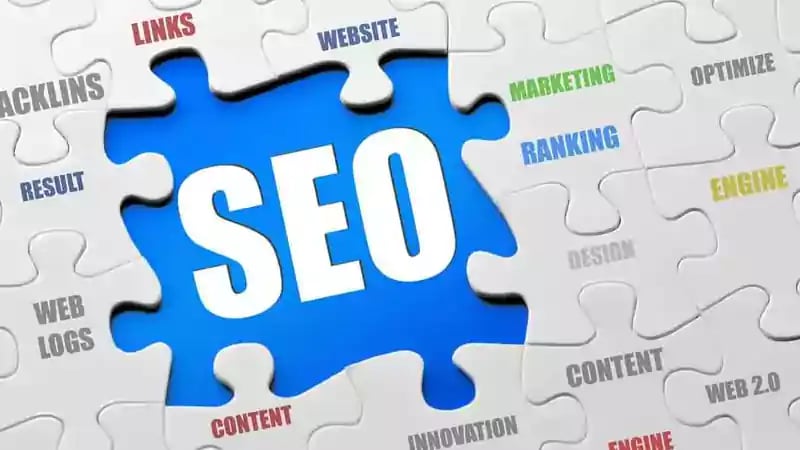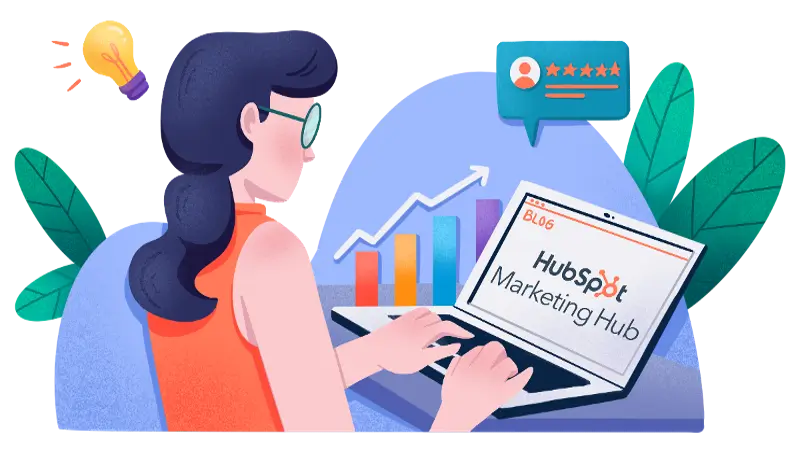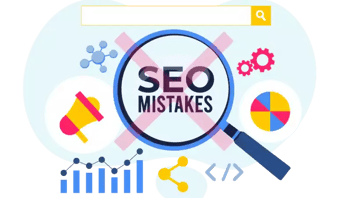Unlock SEO success: Learn how we use HubSpot Content Hub for SEO, boost rankings, increase organic traffic, and optimize our content for success.
Uggh, No! Debunking 5 Common SEO Myths
Think of the last time you had a question or were looking to make a purchase. What did you do first? Chances are that you're in the group of 62% of people who turn to consult with a search engine before making a purchasing decision, and you picked one of the results presented first. Did you know that Google's top five organic search results can account for 67.6% of all clicks (HubSpot)?
Businesses know that their ideal consumers use Google as a resource and aim to determine how to cut through all the noise and get people's attention. You've probably heard of search engine optimization or SEO, and you intuitively understand the importance of ensuring you have a good SEO strategy in place. But how does SEO work, and what does it mean for modern businesses?

When we say Search Engine Optimization or SEO, what do we mean?
At its core, SEO focuses on expanding a company's visibility in organic search results. It helps businesses rank more pages higher in SERPs (Search Engine Result Pages.) And, in turn, drive more visitors to the site, increasing the chances for more conversions.
By improving your SEO, you have a better chance of being seen, more visibility, more visitors, and more consumers. This will generate inbound links and will increase traffic and lead conversions. Whether you're a large B2B company specializing in large-scale software implementations or a small, local B2C operation supporting a few brick-and-mortar stores, you want people to be able to find you on Google, even if it's not specifically *you* that they're looking for.
There are countless articles and blogs detailing multiple strategies to increase SEO, which, unfortunately, gives some businesses the impression that SEO is all about tricks and stratagems and that by being more clever with how they use links or by doing a lot of complex optimization, they can magically rank first in Google searches.
But what if it's not that complicated? What if most of the SEO formula revolves around creating high-quality content consistently and following a handful of best practices for optimization? To the end, thinking more critically about that, we're presenting five SEO myths and why they might not be all they seem.
1. Guest blogging isn't effective.
The truth is just the opposite; guest blogging can be very effective. Whether it's the owner of the website, a published author, or a one-time guest blogger, as long as the content is relevant and of value to your target consumer, blogging (no matter the author) will benefit your business. Often having more than one author can appeal to visitors because there isn't just one voice, and it offers multiple perspectives and topics.
2. More links are better than more content.
It's never a bad idea to include links to helpful content that helps reinforce your messaging, but this isn't necessarily a case of more is better. Having too many links can be confusing and overwhelming to the reader. It's great to have links to supplement your words or provide further information on a topic, but time is better spent on well-written content.
3. SEO is something that can be handed off to IT.
This one's a big NO. Of course, the IT department is critical to a company running smoothly, but they have no business being part of your overall digital marketing strategy. Sure, some articles that describe how to boost your SEO can get a bit technical, but that doesn't change the fact that your marketing strategies should be executed by those who work closely with ideal consumers and understand their desires and behaviors.
It has to start with consistently creating high-quality content that informs and delights.
4. Your homepage needs a lot of content.
The goal of a homepage should be that it's easy to navigate and engaging to your ideal customer. Perhaps you have a background video playing or a testimonial...these are things that will grab the reader's attention and make them want to learn more about you. Your home page is your opportunity to make a first impression on a home run, and quite frankly, you only get one chance to leave a great first impression.
Going deep with relevant and educational content happens in pillar pages and blog posts, forming your topic clusters.
Trying to clutter your homepage with multiple links or keywords isn't going to keep a lead looking for more. Thus, rather than thinking of your homepage as a one-stop-shop for providing visitors with the complete low-down on everything your company says, does, and cares about, think of it as a kind of entryway that leads to more specialized content. This segmentation of different topics into different pages can have a real, positive impact on your ability to rank in searches, provided you have the content to back it up.
You might also like:
5. SEO and inbound marketing don't mix.
Many people think of SEO strategies as a kind of panacea that enables them to ignore things like content marketing or inbound marketing. This simply couldn't be further from the truth! The Digital Marketing Institute shared that companies who blog regularly generate 126% more leads! This statistic, indeed, can't be overlooked and shows good cont
ent's positive effects on SEO.
Once you move past the myths and misconceptions, it's pretty clear that optimizing SEO is really about producing high-quality content consistently. Being able to navigate fact from fiction when it comes to building your online presence is essential to having a solid strategy. It makes for less confusion. Knowing and conveying your intent guarantees that you're keeping your consumers top-of-mind as you create content centered on what they may be looking for. Most of you know (hopefully!) that you can't win customers with weird tricks and convoluted strategies, and the same rule applies to Google. You can't win at SEO with tricks. You have to create content that provides value for your consumers.
This content is also available in:
- German: Igitt, nein! Entlarvung von 5 gängigen SEO-Mythen
- Spanish: ¡No! 5 mitos del SEO
- French: Non ! Démystifier 5 mythes SEO courants
- Italian: No! Sfatare 5 miti comuni della SEO
- Romanian: Uggh, nu! Demascarea a 5 mituri SEO comune
- Chinese: 不揭穿 5 个常见的搜索引擎优化误区










Leave a Comment